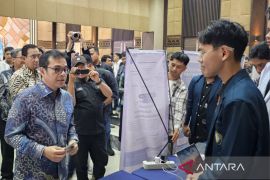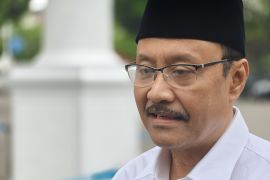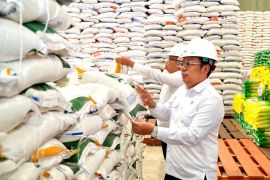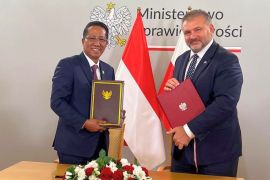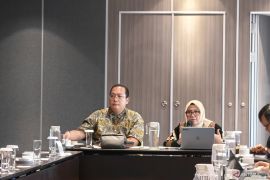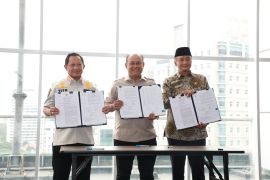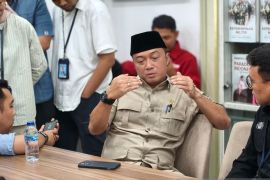The Oceans and Fisheries Partnership is intended to reduce the number of incidents of illegal, unregulated, and unreported (IUU) fishing, as stated in the USAID press release received here on Tuesday.
Through the partnership, USAID and MDPI will develop an innovative system to promote sustainable fisheries and conserve the marine biodiversity, with test sites in Bitung, Indonesia.
Innovations using a new electronic catch documentation and traceability (CDT) system will help small and large fishermen to promote the supply chain of seafood fairly and meet import standards at the regional and international levels.
"(We are looking to promote) seafood products whose origins can be traced and implement sustainable fisheries practices. Sustainable fishery products are a priority of the US government," USAID Regional Development Mission Director for Asia region Todd Sorenson emphasized.
Sorenson said the partnership was one of the efforts to prevent illegal fishing that threatens valuable ecosystems.
The Indonesian seas include some of the worlds richest fishing grounds, and the country is a major exporter of tuna products in the world.
In 2015, Indonesia had supplied more than 1.3 million tons of tuna, or 25 percent of the worlds total tuna supply.
As such, the tuna fishing industry has become a vital component of Indonesias fishing industry and an increasingly important foreign exchange earner within the overall economy.
Hence, the new partnership will focus on the supply chain of tuna.
The CDT system will help collect and validate key data on tuna products, including legality and movement, from the catch site to the final consumer.
Ultimately, the effort will help the Government of Indonesia meet fair supply chain standards and reduce illegal fishing in the Indonesian waters.
Based on data of the Public Coalition for Fisheries Justice, the state lost Rp101 trillion to illegal fishing activities between January and August 2014, during which a total of 1.6 million tons of fish, or 182 tons per day, were stolen from Indonesian waters.
Most of the foreign fishing boats that poached in the Indonesian waters came from Vietnam, Malaysia, Thailand, the Philippines, Taiwan, Hong Kong, and China.
Nine of the countrys 11 regional fishery management areas have indications of overfishing due to poaching.
President Joko Widodo had earlier urged all parties to end illegal fishing activities in the Indonesian waters in an attempt to preserve marine resources.
"We should fight against illegal fishing bravely to safeguard our marine resources," President Widodo had stated at the 2017 Annual Session of the Peoples Consultative Assembly in Jakarta on Wednesday.
Various parties should not hesitate to maintain Indonesias sovereignty and safeguard the natural resources, the president said.
"The government continues to sink foreign vessels found fishing illegally in the Indonesian waters," he added.(*)
Editor: Heru Purwanto
Copyright © ANTARA 2017

